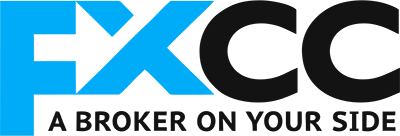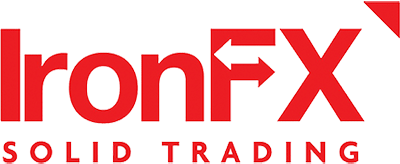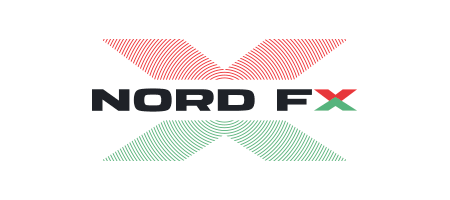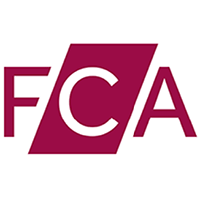In the intricate world of forex trading the importance of partnering with the right Forex Broker cannot be overstated. This relationship is not merely a facilitator for executing trades; it is a foundational aspect of a trader's potential for success and security in the forex market. This section delves into the critical reasons why choosing the Best Forex Broker is paramount for traders at all levels. Forex brokers serve as the gateway to the market, providing traders with essential information, including real-time quotes, news feeds, charts, and analysis. The quality and timeliness of this information can significantly affect trading decisions and outcomes. A broker with superior resources and tools can provide traders with a competitive edge, enabling them to make informed decisions based on accurate and comprehensive market insights. This section reveals the main aspects of selecting the Best Forex Broker in 2025 including:
Regulatory Compliance and Security of Funds.The forex market is decentralized, which highlights the importance of trading with a broker that is regulated by reputable financial authorities. Regulatory compliance ensures that the broker adheres to strict financial standards, including the security of client funds, which are often held in segregated accounts to protect them from misuse. Trading with a regulated broker provides peace of mind and safeguards traders’ investments against fraud and bankruptcy.
Customer Support and Service. Forex trading is a 24/5 endeavor, and issues or questions can arise at any time. Access to responsive and knowledgeable customer support is essential. The best forex brokers provide dedicated support teams that are available around the clock, offering assistance in multiple languages. This level of service ensures that traders can resolve issues quickly and continue trading activities with minimal disruption.
Education and Resources. For both novice and experienced traders, ongoing education and access to comprehensive resources are vital for honing trading skills and strategies. Top forex brokers invest in their clients' success by offering a wealth of educational materials, such as webinars, e-books, tutorials, and more. These resources enable traders to stay informed about market dynamics, trading techniques, and financial news, contributing to their overall trading proficiency.
Account Types and Customization.Traders have diverse needs and risk tolerances, which necessitate different account types and customization options. The best brokers offer a variety of account types, each with specific features, benefits, and conditions tailored to different trading styles and experience levels. This flexibility allows traders to choose an account that best suits their trading strategy and goals, whether they are focused on long-term investing or day trading.
The choice of a forex broker is a decisive factor that can influence a trader’s success in the forex market. It affects not only the execution of trades but also the overall trading experience, including access to information, security of funds, and the ability to learn and grow as a trader. Therefore, thorough research and consideration are imperative when selecting a forex broker. By prioritizing factors such as overall rating, regulatory compliance, trading conditions, platform reliability, and customer support, traders can make an informed decision that aligns with their trading needs and aspirations, setting the stage for a potentially prosperous trading journey.

Overall Rating
Commissions Rating
Conditions Rating
HFM, also known as HFM Group, is a prominent brokerage firm offering comprehensive trading services in the Forex market. With a global presence and a commitment to transparency and customer satisfaction, HFM has established itself as a trusted name in the industry.

Overall Rating
Commissions Rating
Conditions Rating
FxPro is a prominent name in the world of online forex brokerage, recognized for offering a wide array of trading services to clients globally. Founded in 2006, FXPro has established itself as a leading player in the forex market, catering to both retail and institutional traders.

Overall Rating
Commissions Rating
Conditions Rating
OctaFX is a well-recognized online Forex broker that has carved a niche for itself in the competitive world of Forex trading. Since its inception in 2011, OctaFX has been committed to providing a high-quality trading environment designed to cater to the needs of traders globally.

Overall Rating
Commissions Rating
Conditions Rating
Exness is a globally recognized brokerage firm that offers online trading services. Founded in 2008, Exness has grown rapidly to become one of the largest and most trusted Forex brokers in the industry. With a focus on innovation, transparency, and client satisfaction, Exness strives to provide traders with the tools and resources they need to succeed in the financial markets.

Overall Rating
Commissions Rating
Conditions Rating
FXTM, also known as ForexTime, is a leading online brokerage firm specializing in Forex and CFD trading. With a global presence and a commitment to innovation and client satisfaction, FXTM has established itself as a trusted name in the financial industry. The broker offers a wide range of trading instruments, advanced trading platforms, and competitive trading conditions.

Overall Rating
Commissions Rating
Conditions Rating
FX Central Clearing Ltd., commonly known as FXCC, stands as a distinguished online brokerage, excelling in Forex and CFD trading. Its dedication to transparency, integrity, and ensuring client satisfaction has garnered a commendable reputation within the financial sector. FXCC provides an array of trading instruments, cutting-edge trading platforms, and favorable trading conditions.

Overall Rating
Commissions Rating
Conditions Rating
IronFX stands out as a distinguished online brokerage firm in the Forex trading sector. Launched in 2010, IronFX has rapidly climbed the ranks to become a prominent figure in the industry, offering traders a broad spectrum of financial instruments, sophisticated trading platforms, and favorable trading conditions.

HFM was founded in 2010 and has since grown into one of the leading Forex brokers worldwide. The company's journey began with a vision to provide retail and institutional clients with access to a wide range of financial markets and innovative trading tools. Over the years, HFM has expanded its offerings and enhanced its services to meet the evolving needs of traders in today's dynamic market environment. HFM operates under the strict regulatory oversight of multiple regulatory authorities, ensuring compliance with international standards and the protection of client funds. The broker is regulated by reputable bodies such as the Financial Conduct Authority (FCA) in the UK, the Financial Services Commission (FSC) in Mauritius. These regulatory licenses demonstrate HFM' commitment to maintaining the highest standards of integrity and transparency in its operations. The headquarters of HFM is located in Cyprus. Additionally, the broker has regional offices in various countries, including the UK and Dubai, reflecting its global presence and commitment to serving clients worldwide.
Regulatory Compliance: HFM operates under the oversight of reputable regulatory authorities, providing clients with confidence in the safety and security of their funds.
Diverse Range of Trading Instruments: The broker offers a wide range of tradable instruments, including major and exotic currency pairs, commodities, indices, and cryptocurrencies, allowing clients to diversify their investment portfolios.
Advanced Trading Platforms: HFM provides access to cutting-edge trading platforms such as MetaTrader 4 (MT4) and MetaTrader 5 (MT5), renowned for their robust features, advanced charting tools, and user-friendly interfaces.
Competitive Trading Conditions: The broker offers competitive spreads, low commission fees, flexible leverage options, and fast execution speeds, enhancing the trading experience for clients.
Educational Resources and Research Tools: HFM offers comprehensive educational resources, including tutorials, webinars, and market analysis, to help traders develop their skills and make informed trading decisions.
Inactivity Fees: HFM charges inactivity fees for dormant accounts, which may affect traders who do not actively engage in trading.
Limited Availability of Some Services: Certain services and features may not be available to clients in certain regions due to regulatory restrictions.
Trading Platforms and Trading Conditions: HFM offers access to a range of advanced trading platforms, including MetaTrader 4 (MT4) and MetaTrader 5 (MT5), which are available for desktop, web, and mobile devices. These platforms provide traders with advanced charting tools, technical indicators, and automated trading capabilities, enabling them to execute trades efficiently and effectively. The trading conditions at HFM include competitive spreads starting from as low as 0.0 pips, with variable or fixed spread options available. The broker offers leverage of up to 1:1000, allowing traders to amplify their trading capital. Additionally, HFM imposes minimal commission fees, making trading cost-effective for clients.
Detailed Rating & Review Trader's reviewsIn summary, HFM stands out as a reputable and trustworthy brokerage firm with a strong track record in the Forex market. With its regulatory compliance, diverse range of trading instruments, advanced trading platforms, competitive trading conditions, and comprehensive educational resources, HFM offers a compelling option for both novice and experienced traders. Despite minor drawbacks such as inactivity fees and limited availability of certain services, HFM' overall reputation for reliability, transparency, and trustworthiness makes it a top choice for traders seeking a reputable broker in the Forex market.

The broker is known for its client-centric approach, offering access to a vast range of markets, including forex, futures, spot indices, shares, spot metals, and energies. FXPro's journey began over a decade ago with a vision to democratize trading by providing transparent and fair access to financial markets. This vision was underpinned by a commitment to offering superior trading conditions, advanced technology, and exceptional client service. Over the years, FXPro has expanded its operations globally, serving clients in more than 170 countries. The brokerage has gained a reputation for reliability, innovation, and excellence. It has received numerous awards and accolades from financial institutions and publications, acknowledging its service quality, technological advancements, and contribution to the trading industry. FXPro's dedication to transparency and client protection is evident in its choice of regulatory compliance and operational conduct. FXPro was founded in 2006 by a group of financial experts who aimed to create a brokerage that prioritized the trader's needs. Over the years, it has evolved from a small broker into a global entity, continually enhancing its product offerings and technological infrastructure to meet the dynamic needs of traders.
FXPro is heavily regulated by several reputable financial authorities, including the Financial Conduct Authority (FCA) in the UK, the Cyprus Securities and Exchange Commission (CySEC), the Financial Sector Conduct Authority (FSCA) in South Africa, and the Securities Commission of The Bahamas (SCB). These regulatory frameworks ensure that FXPro operates within strict guidelines, offering a secure and transparent trading environment for its clients. FXPro's headquarters is located in London, UK, with additional offices in Cyprus, Monaco, and the Bahamas. This global presence not only underscores its commitment to being close to its clients but also its capacity to offer localized support and services across different regions.
Trading Platforms and Conditions. FXPro offers a variety of trading platforms, including MetaTrader 4, MetaTrader 5, cTrader, and the FXPro Trading Platform. Each platform comes with its own set of features, including advanced charting tools, automated trading capabilities, and a user-friendly interface. The trading conditions at FXPro are competitive, with tight spreads, no commissions on MT4 and MT5 platforms, and a commission-based structure on cTrader. The broker provides leverage up to 1:500, depending on the client's knowledge and experience.
Detailed Rating & Review Trader's reviewsFXPro stands out as a broker of choice for traders seeking a reliable, regulated, and reputable online forex broker. Its commitment to providing a secure trading environment, combined with competitive trading conditions, advanced technology, and dedicated customer support, makes it a compelling option for traders of all levels. The broker's strong regulatory framework and global presence further solidify its reputation as a trustworthy and transparent broker in the forex market. Whether you're a novice trader or an experienced professional, FXPro offers a trading experience that is both enriching and secure, making it a top consideration for anyone looking to engage in online trading.

NordFX was founded in 2008 and has steadily grown into a respected global forex and CFD broker. From the outset, the company's vision has been to provide individual and institutional clients with access to diverse financial markets and cutting-edge trading solutions. Over the years, NordFX has expanded its offerings and optimized its platforms to meet the changing needs of modern traders. NordFX operates under the regulatory oversight of established financial authorities, ensuring full compliance with international standards and the safety of client funds. The broker is authorized and supervised by the Vanuatu Financial Services Commission (VFSC) and holds additional registrations in India and other jurisdictions. These licenses reflect NordFX's dedication to maintaining transparency, accountability, and ethical trading practices. The broker’s main headquarters is located in Port Vila, Vanuatu, with a global client base spanning over 190 countries.
Detailed Rating & Review Trader's reviewsNordFX is a long-standing and trustworthy forex and CFD broker that offers a solid trading environment for traders of all levels. Its combination of low-cost trading, high leverage, simple account structures, and investment-friendly products make it an appealing choice for those looking for flexible, efficient market access. While it may lack some advanced tools or top-tier regulation, NordFX compensates with user-friendly platforms, ultra-low spreads, and innovative features like crypto trading and copy trading. For traders seeking a cost-effective and straightforward broker with a global reach and consistent performance, NordFX is a smart choice.

The broker is renowned for its client-centric approach, offering a range of financial instruments, cutting-edge technology, and a platform for both novice and experienced traders to excel. With a strong emphasis on reliability, transparency, and innovation, Octa has managed to attract a significant client base by offering competitive spreads, low latency execution, and minimal slippage. This focus on delivering an optimal trading experience is complemented by their dedication to customer service, providing traders with extensive educational resources, market analysis, and 24/5 customer support. Founded in 2011, OctaFX set out with the aim of creating a trading environment that was both inclusive and conducive to the success of traders at all levels. Over the years, it has significantly expanded its service offerings and global reach, continually adapting to the evolving needs of the Forex market and its participants. The company's growth trajectory is marked by a series of strategic developments, including the introduction of new trading instruments, platform enhancements, and a focus on sustainable trading practices. Octa operates under the regulatory oversight of the Cyprus Securities and Exchange Commission (CySEC), ensuring compliance with stringent EU financial regulations. This regulatory framework mandates strict adherence to financial standards, including client fund protection, transparency, and fair trading practices. Traders can thus engage with Octa with confidence, knowing they are dealing with a broker that is held to high regulatory standards. The broker's main operational headquarters are located in Cyprus, a strategic choice given the country's status as a key financial hub within the European Union. This location not only facilitates regulatory compliance but also positions Octa to effectively serve a diverse international clientele.
Competitive Spreads and Low Commissions: Octa is known for its tight spreads and low commission structure, which can significantly enhance trading profitability.
Advanced Trading Platforms: Offers MetaTrader 4, MetaTrader 5, and the Octa Trading App, catering to all levels of trading expertise.
Robust Regulation: Regulated by CySEC, providing traders with a secure and transparent trading environment.
Excellent Customer Support: Offers comprehensive 24/5 support, including educational resources and timely market analysis.
No Deposit or Withdrawal Fees: Transactions are processed without additional charges, making it cost-effective for traders.
Limited Financial Instruments: While offering a range of popular instruments, Octa's selection may be narrower compared to some competitors.
Restricted in Some Countries: Not available to traders in certain jurisdictions due to regulatory constraints.
Octa supports MetaTrader 4, MetaTrader 5, and its proprietary Octa Trading App. These platforms are equipped with advanced charting tools, automated trading features, and are accessible on desktop and mobile devices. Trading conditions include leverage up to 1:500, spreads starting from 0.2 pips, and a transparent commission structure that ensures traders have clear insights into their trading costs. Octa stands out as a reputable Forex broker offering a secure, innovative, and user-friendly trading environment. Its commitment to regulatory compliance, combined with competitive trading conditions and exceptional customer support, makes it an attractive option for traders seeking a reliable and efficient brokerage. The broker's emphasis on education and market analysis further supports its clients in making informed trading decisions.
Detailed Rating & Review Trader's reviewsIn choosing Octa, traders align themselves with a broker that values transparency, integrity, and the success of its clients. Despite some limitations in product offerings and geographical availability, Octa's reputation and trust within the trading community continue to grow, underpinned by its dedication to providing superior trading experiences. For those seeking a partner in the Forex market, Octa represents a compelling choice, distinguished by its commitment to excellence and the continuous enhancement of its services to meet the evolving needs of its clientele.

Established in 2008 by a cadre of financial experts, Exness embarked on a mission to transform the online trading landscape. From its outset, Exness has seen remarkable growth, broadening both its customer base and global footprint. Through relentless technological investment and a dedication to superior service, Exness has risen to prominence in the Forex trading sphere. Operating under stringent regulatory oversight, Exness is committed to upholding international standards and safeguarding client assets. The firm is licensed by esteemed regulatory entities, including the UK's Financial Conduct Authority (FCA), the Cyprus Securities and Exchange Commission (CySEC), and the Financial Services Commission (FSC) in Seychelles. These accreditations underline Exness's adherence to the highest ethical and operational standards. With its main office situated in Limassol, Cyprus, Exness also maintains regional branches in key locations such as the UK, Singapore, and Cyprus. This global network underscores its dedication to offering comprehensive services to clients across the globe.
Regulatory Assurance: Exness is regulated by well-respected authorities, offering traders peace of mind regarding the security of their investments.
State-of-the-Art Trading Platforms: Exness provides access to premier trading platforms like MetaTrader 4 (MT4) and MetaTrader 5 (MT5), known for their powerful functionalities, superior charting capabilities, and intuitive user interfaces.
Favorable Trading Terms: Clients enjoy advantageous trading conditions, including competitive spreads, minimal commission fees, variable leverage options, and swift trade executions.
Extensive Instrument Portfolio: Exness's diverse array of trading instruments, encompassing major and exotic currency pairs, commodities, indices, and cryptocurrencies, facilitates broad investment diversification.
Educational and Analytical Resources: Exness enriches traders' knowledge and decision-making with a wealth of educational materials, webinars, and insightful market analysis.
Regional Service Restrictions: Due to regulatory constraints, some Exness services and features may be inaccessible to clients in certain jurisdictions.
Trading Infrastructure and Conditions: Exness offers a suite of sophisticated trading platforms, including MetaTrader 4 (MT4) and MetaTrader 5 (MT5), suitable for various devices. These platforms boast advanced charting options, numerous technical indicators, and automated trading features, enabling traders to conduct their transactions both efficiently and effectively. Trading terms at Exness are characterized by highly competitive spreads from as low as 0.0 pips, offering both variable and fixed spread configurations. The brokerage provides leverage up to 1:2000, allowing for significant trading capital amplification. Furthermore, Exness's trading framework is designed to be cost-effective, thanks to its minimal commission charges.
Detailed Rating & Review Trader's reviewsExness stands out as a reliable and distinguished brokerage in the Forex arena, attributed to its regulatory integrity, cutting-edge trading platforms, beneficial trading conditions, and extensive educational resources. While it faces minor limitations like restricted service availability in certain areas, Exness's steadfast reputation for trust, transparency, and excellence positions it as an attractive broker choice for traders at all levels of experience.

FXTM was founded in 2011 by a team of financial professionals with extensive experience in the Forex industry. Since its inception, the company has grown rapidly, expanding its client base and geographic reach. FXTM has received numerous awards and accolades for its excellent service and commitment to excellence, solidifying its reputation as a leading brokerage firm in the Forex market. FXTM operates under the regulatory supervision of multiple reputable authorities, ensuring compliance with international standards and the protection of client funds. The broker is regulated by regulatory bodies such as the Financial Conduct Authority (FCA) in the UK, the Cyprus Securities and Exchange Commission (CySEC) in Cyprus, and the Financial Services Commission (FSC) in Mauritius. These regulatory licenses demonstrate FXTM's commitment to maintaining the highest standards of integrity and transparency in its operations. FXTM's headquarters are located in Limassol, Cyprus. Additionally, the broker has regional offices in various countries, including the UK, South Africa, and Nigeria, reflecting its global presence and commitment to serving clients worldwide.
Regulatory Compliance: FXTM operates under the oversight of reputable regulatory authorities, providing clients with confidence in the safety and security of their funds.
Advanced Trading Platforms: FXTM offers access to cutting-edge trading platforms such as MetaTrader 4 (MT4) and MetaTrader 5 (MT5), renowned for their robust features, advanced charting tools, and user-friendly interfaces.
Competitive Trading Conditions: The broker provides competitive spreads, low commission fees, flexible leverage options, and fast execution speeds, enhancing the trading experience for clients.
Diverse Range of Trading Instruments: FXTM offers a wide range of tradable instruments, including major and exotic currency pairs, commodities, indices, and cryptocurrencies, allowing clients to diversify their investment portfolios.
Educational Resources and Research Tools: FXTM offers comprehensive educational resources, including tutorials, webinars, and market analysis, to help traders develop their skills and make informed trading decisions.
Limited Availability of Some Services: Certain services and features may not be available to clients in certain regions due to regulatory restrictions.
FXTM provides access to a range of advanced trading platforms, including MetaTrader 4 (MT4) and MetaTrader 5 (MT5), which are available for desktop, web, and mobile devices. These platforms offer advanced charting tools, technical indicators, and automated trading capabilities, enabling traders to execute trades efficiently and effectively. The trading conditions at FXTM include competitive spreads starting from as low as 0.1 pips, with variable or fixed spread options available. The broker offers leverage of up to 1:1000, allowing traders to amplify their trading capital. Additionally, FXTM imposes minimal commission fees, making trading cost-effective for clients.
Detailed Rating & Review Trader's reviewsFXTM is a reputable and trustworthy brokerage firm with a strong track record in the Forex market. With its regulatory compliance, advanced trading platforms, competitive trading conditions, and comprehensive educational resources, FXTM offers a compelling option for both novice and experienced traders. Despite minor drawbacks such as limited availability of certain services, FXTM's overall reputation for reliability, transparency, and trustworthiness makes it a top choice for traders seeking a reputable broker in the Forex market.

Established in 2009, XM has carved a niche for itself in the competitive Forex trading landscape. Over the years, the firm has witnessed substantial growth, amassing a broad clientele thanks to its commitment to outstanding customer service and superior trading execution. XM has adapted its offerings to align with the evolving demands of traders, maintaining its position as a leading entity in the sector. XM stands out for its stringent compliance with international regulatory standards, safeguarding client investments. It is authorized and regulated by several esteemed bodies, including the Cyprus Securities and Exchange Commission (CySEC), the Financial Conduct Authority (FCA) in the UK, and the Australian Securities and Investments Commission (ASIC). These accreditations underscore XM's dedication to upholding the utmost in operational integrity and transparency. The primary operations hub of XM is situated in Limassol, Cyprus, with additional regional offices across the UK, Australia, and Greece. This widespread presence highlights XM's commitment to offering tailored services to its international customer base.
Trading Infrastructure and Conditions: XM offers access to an array of advanced trading platforms, including MetaTrader 4 (MT4) and MetaTrader 5 (MT5), compatible with desktop, web, and mobile usage. These platforms are equipped with sophisticated charting utilities, a range of technical indicators, and automation capabilities, ensuring efficient and effective trade management. XM's trading conditions are characterized by highly competitive spreads as low as 0.0 pips, alongside both variable and fixed spread options. The broker provides leverage up to 1:888, enabling significant capital augmentation. Furthermore, XM's trading model is designed to be cost-efficient, featuring minimal commission fees.
Detailed Rating & Review Trader's reviewsXM stands as a reputable and reliable broker within the Forex market, distinguished by its adherence to regulatory standards, advanced trading platforms, favorable trading conditions, and extensive educational resources. While it faces minor limitations such as the regional unavailability of certain offerings, XM's reputation for dependability, transparency, and excellence positions it as a preferred choice for both beginner and seasoned traders in search of a credible Forex trading partner.

Established in 2010, FXCC is a relatively fresh entrant in the Forex marketplace. Despite its brief history, the firm has rapidly distinguished itself through premium service quality and a steadfast commitment to excellence. The founders, who boast a wealth of experience in financial markets, aimed to establish a brokerage that foregrounds client interests and delivers an unmatched trading experience. FXCC is subject to the regulation of esteemed authorities, adhering to global standards and safeguarding client investments. It is regulated by entities including the Cyprus Securities and Exchange Commission (CySEC) and the Financial Sector Conduct Authority (FSCA) in South Africa, highlighting its adherence to the utmost standards of integrity and transparency. The main office of FXCC is situated in Limassol, Cyprus, with additional regional offices, such as in South Africa, underscoring its international outreach and dedication to catering to clients across the globe.
Regulatory Assurance: FXCC's compliance with esteemed regulatory bodies instills confidence regarding the safety and security of client assets.
State-of-the-Art Trading Platforms: The brokerage offers MetaTrader 4 (MT4) and MetaTrader 5 (MT5), platforms celebrated for their comprehensive features, sophisticated charting capabilities, and intuitive interfaces.
Attractive Trading Conditions: Clients benefit from competitive spreads, minimal commission fees, versatile leverage options, and swift execution speeds, enriching the trading experience.
Broad Selection of Trading Instruments: FXCC enables trading in a wide variety of instruments, including major and exotic currency pairs, commodities, indices, and cryptocurrencies, facilitating portfolio diversification.
Exceptional Customer Support: The broker provides efficient and dependable customer service, accessible 24/5 via email, phone, and live chat, to address any client inquiries or concerns.
Restricted Service Availability: Regulatory constraints may limit the availability of certain services and features for clients in specific regions.
Youthfulness of the Broker: The relatively recent establishment of FXCC might prompt reservations among traders accustomed to more seasoned brokers.
FXCC grants access to leading trading platforms like MetaTrader 4 (MT4) and MetaTrader 5 (MT5), compatible with desktop, web, and mobile usage. These platforms are equipped with advanced charting tools, technical indicators, and options for automated trading, facilitating efficient and strategic trade execution. The trading conditions at FXCC feature highly competitive spreads from as low as 0.0 pips, with choices between variable or fixed spreads. The broker also offers leverage up to 1:500, enabling significant amplification of trading capital, while maintaining low commission fees to ensure cost-effective trading.
Detailed Rating & Review Trader's reviewsIn conclusion, FXCC emerges as a credible and dependable brokerage firm in the Forex domain, characterized by its regulatory compliance, sophisticated trading platforms, advantageous trading conditions, and proactive customer support. Although relatively newer in comparison to some established brokers, FXCC's dedication to excellence and client satisfaction positions it as an appealing choice for traders in search of a reputable trading partner.

IronFX stands out as a distinguished online brokerage firm in the Forex trading sector. Launched in 2010, IronFX has rapidly climbed the ranks to become a prominent figure in the industry, offering traders a broad spectrum of financial instruments, sophisticated trading platforms, and favorable trading conditions. Dedicated to excellence and client satisfaction, IronFX has built a reputable standing among traders globally. Initiated in 2010 by a team of seasoned financial experts, IronFX has shown remarkable growth and expansion since its establishment. Attracting a vast clientele, the firm is celebrated for its superior services. The founders of IronFX set out to merge state-of-the-art technology with personalized customer care to address the varied demands of traders. IronFX is subject to the oversight of several esteemed regulatory bodies, affirming its adherence to international norms and the safeguarding of client assets. It is regulated by authorities including the Cyprus Securities and Exchange Commission (CySEC), the Financial Conduct Authority (FCA) in the UK, and the Australian Securities and Investments Commission (ASIC). These endorsements reinforce IronFX's dedication to upholding the utmost standards of integrity and openness. Headquartered in Limassol, Cyprus, IronFX also maintains regional offices in key locations such as the UK, Australia, and South Africa. This underscores its global outreach and its pledge to cater to a worldwide clientele.
Regulatory Assurance: IronFX's compliance with authoritative regulatory standards ensures the security and protection of client funds.
Superior Trading Platforms: IronFX grants access to premier trading platforms like MetaTrader 4 (MT4) and MetaTrader 5 (MT5), acclaimed for their comprehensive features, sophisticated charting capabilities, and intuitive design.
Attractive Trading Conditions: IronFX offers appealing trading terms, including competitive spreads, nominal commission fees, adaptable leverage options, and swift trade executions.
Wide-ranging Trading Instruments: With an extensive selection of trading instruments including various currency pairs, commodities, indices, and cryptocurrencies, IronFX enables clients to diversify their trading portfolios.
Educational and Analytical Resources: IronFX provides an array of educational materials, webinars, and analytical tools to support traders in enhancing their skills and making well-informed decisions.
Account Verification Process: Some users have reported difficulties with the account verification process, citing delays and complications.
Regional Service Limitations: Due to regulatory considerations, specific services and features might not be accessible to clients in certain areas.
IronFX offers a suite of advanced trading platforms, including MetaTrader 4 (MT4) and MetaTrader 5 (MT5), compatible with desktop, web, and mobile. These platforms feature sophisticated charting options, numerous technical indicators, and functionalities for automated trading, facilitating efficient and effective trade executions. IronFX's trading conditions are highly competitive, with spreads starting as low as 0.0 pips and the choice between variable or fixed spreads. The brokerage provides leverage up to 1:1000, enhancing traders' ability to increase their trading capital. Furthermore, IronFX's trading framework is designed to be cost-efficient, with minimal commission charges.
Detailed Rating & Review Trader's reviewsIronFX is a reputable and reliable brokerage firm with a commendable history in the Forex market. It stands as a strong candidate for traders in search of a dependable brokerage, thanks to its regulatory compliance, advanced trading platforms, favorable trading conditions, and extensive educational resources. While there are minor issues like the complex account verification process and regional restrictions on services, IronFX's reputation for dependability, transparency, and integrity positions it as a preferred choice for traders aiming to partner with a trustworthy brokerage.
Forex Guides about the Best Forex Brokers

Choosing a regulated broker is not just a matter of preference; it is a necessity for safeguarding your investments and ensuring that you trade in a fair and secure environment.

Welcome to our in-depth discussion, the third lesson in our series, where we focus on a pivotal aspect of financial trading: choosing the right broker...

The foreign currency market provides endless opportunities through price action to realize this particular aspiration if one has the skills and knows how to seize said opportunities when they present themselves...

Are you a beginner trader looking for an easier way to make profits in the complicated Forex market? Do you find the task of analyzing charts and staying up-to-date with economic news to be boring and tiresome?

Exploring Islamic Forex trading: opportunities for Muslims and non-Muslims in a Sharia-compliant market

You must agree that getting a good night's sleep is easier when you know that if anything happens, you can get money from your Forex account without a delay. Paying an unexpectedly large bill, buying a birthday present at the last moment...

Forex broker scams remain a prevalent issue in 2023. Last year, we uncovered at least 13 Forex broker frauds, which operated in different jurisdictions, from the EU to the offshores...

Regulation is one of the main things in any financial market, be that stocks, commodities, indices, or Forex. The opinions about regulation are always polarized: some think there’s too much of it, and others say there’s too little...

Hopefully, when we compared the Forex brokerage industry to the ocean with black holes you didn't get the impression that this entire space is corrupt. On the contrary, the number of trusted Forex providers is so high...

First things first, allow me to explain the meaning of a Forex no deposit bonus. As the name suggests, it's a small cash bonus allocated to newly registered trading accounts without the requirement...
© 2006-2025 Forex-Ratings.com
The usage of this website constitutes acceptance of the following legal information.
Any contracts of financial instruments offered to conclude bear high risks and may result in the full loss of the deposited funds. Prior to making transactions one should get acquainted with the risks to which they relate. All the information featured on the website (reviews, brokers' news, comments, analysis, quotes, forecasts or other information materials provided by Forex Ratings, as well as information provided by the partners), including graphical information about the forex companies, brokers and dealing desks, is intended solely for informational purposes, is not a means of advertising them, and doesn't imply direct instructions for investing. Forex Ratings shall not be liable for any loss, including unlimited loss of funds, which may arise directly or indirectly from the usage of this information. The editorial staff of the website does not bear any responsibility whatsoever for the content of the comments or reviews made by the site users about the forex companies. The entire responsibility for the contents rests with the commentators. Reprint of the materials is available only with the permission of the editorial staff.
We use cookies to improve your experience and to make your stay with us more comfortable. By using Forex-Ratings.com website you agree to the cookies policy.